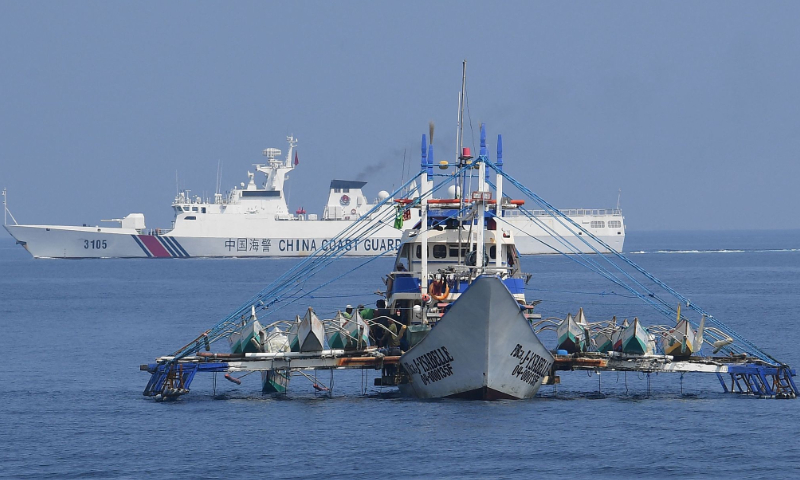
Chinese coast guard (back) conducts patrol missions in the waters near Huangyan Island in the South China Sea on September 20, 2023. Photo: VCG
Hyping of the South China Sea issue by the Group of Seven (G7) is just the same old tune, which has become a part of the carefully planned cognitive warfare against China, an expert said on Thursday in response to the G7's latest statement on China's military activities in the South China Sea.
After a virtual meeting attended by G7 members' heads of state on Wednesday, the bloc released a statement, in which it claimed to oppose China's militarization activities in the South China Sea and mentioned the so-called South China Sea arbitration.
The G7 has kept hyping the South China Sea issue with a more coordinated position under US leadership. They try to influence the international community and the Chinese public to force the Chinese government to change its foreign policy, Chen Xiangmiao, director of the world navy research center at the National Institute for South China Sea Studies, told the Global Times on Thursday.
Chen said such hyping also sent a misleading message to the Philippines, encouraging it to stir up trouble. The US has played a role of instigating and supporting the Philippines' infringement, escalating maritime tensions, Chen said.
The Chinese Foreign Ministry has also emphasized that China's position on the so-called South China Sea arbitration and the award is consistent, clear and firm. China's Ministry of Foreign Affairs issued a statement on this on July 12, 2016, in which it noted the Arbitral Tribunal violated the principle of state consent, exercised its jurisdiction ultra vires and rendered an award in disregard of the law. This is a grave violation of the United Nations Convention on the Law of the Sea (UNCLOS) and international law.
Global Times




